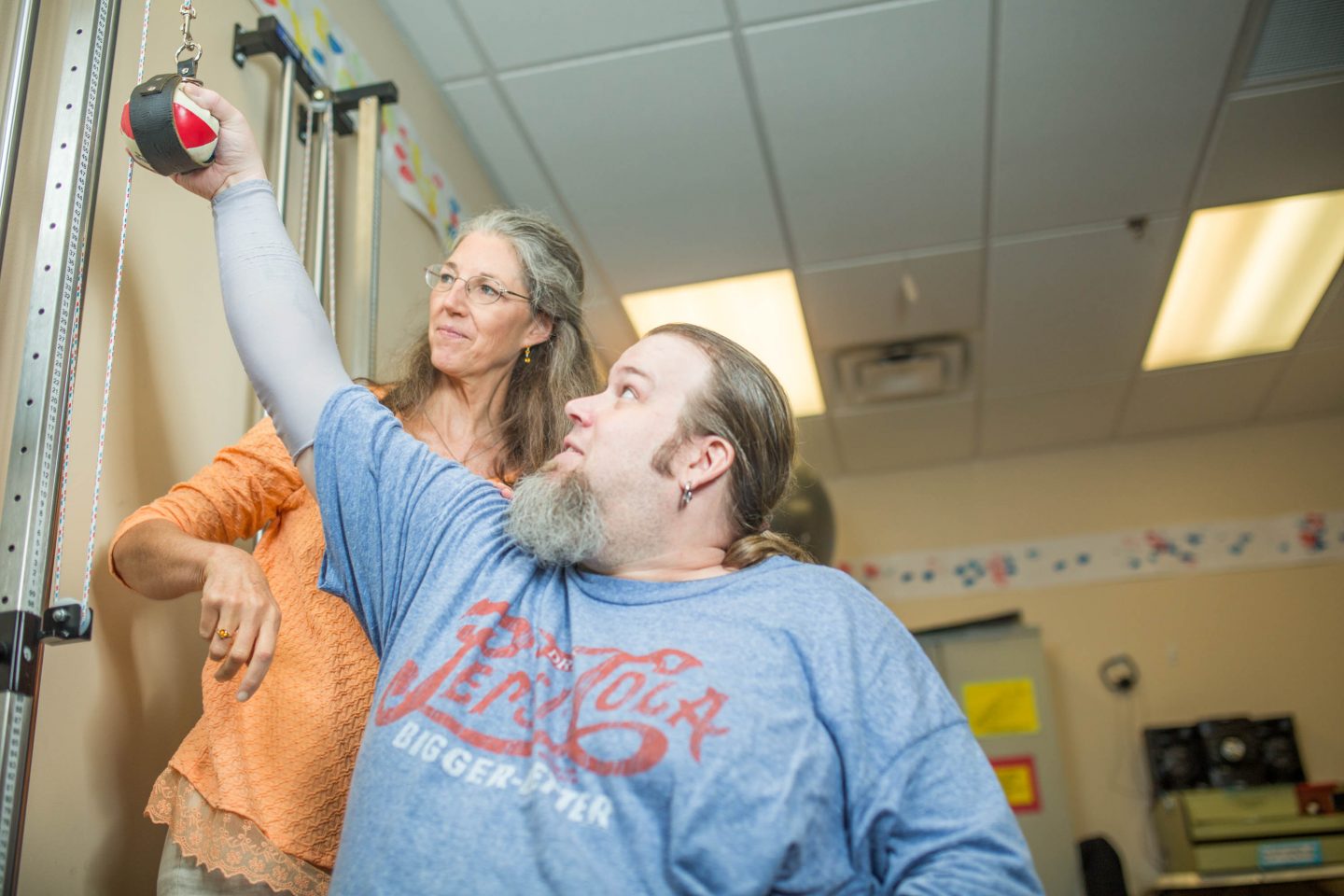An Answer for the Agony of Complex Regional Pain Syndrome (CRPS)
Clinical ExpertiseSep 22, 2016
Complex Regional Pain Syndrome (CRPS) is one of those diagnoses you do NOT want to get. This is a pain condition that can develop after an injury, a surgery, or for no apparent reason at all. Women are three to four times more likely to develop this than men. It’s been documented in children as young as two and adults of all ages.
With CRPS, there is a constant pain sensation described as fire, ice, burning and stinging. It is associated with swelling, skin color changes, hot or cold variations and differences in sweatiness of the affected area. Then there’s weakness or stiffness. A small percentage of individuals may even experience tremors or spontaneous wounds.
Solutions for the Pain
 When CRPS is diagnosed, physical therapy is seen as a first-line treatment. Therapy would involve activities to gradually help with sensitivity because clothes, touch or even the breeze can be painful. The way to decrease this sensitivity is with consistent, strategic exposure to the sensation that is painful. If clothes are painful, then contact with fabrics is recommended, working with sensory exposure for 3-5 minutes several times a day. The feeling may not return to normal, but it can become less painful.
When CRPS is diagnosed, physical therapy is seen as a first-line treatment. Therapy would involve activities to gradually help with sensitivity because clothes, touch or even the breeze can be painful. The way to decrease this sensitivity is with consistent, strategic exposure to the sensation that is painful. If clothes are painful, then contact with fabrics is recommended, working with sensory exposure for 3-5 minutes several times a day. The feeling may not return to normal, but it can become less painful.
For those affected in the feet or legs, pain is also encountered when standing and walking. When the hands are affected there is pain to hold or carry; pain to open and touch with the hand. The nervous system is so sensitive that normal sensations are interpreted as very painful, even months after the original injury has healed. Resetting the sensitivity of the nervous system requires gradual but consistent exposure to the sensation that it is misinterpreting. We practice gradual weight bearing for the foot that does not want to be stood on or partial movements with the hand leading to larger movements. That may involve carrying an empty bag and then progressing to carrying items in that bag.
Learning is Key
When every part of your body is telling you to not do things that are painful it can be very confusing to be with a therapist who is encouraging you to do painful things. How can the two opposing thoughts work together? It has to start with education. Educating a patient about the reactivity of the nervous system and the chemical changes in the body that are leading to false signals is a starting point. Learning that pain does not always mean injury or damage helps to allay fears that such therapy would do more harm than good. I have used presentations, photos, portions or articles and books to help share this with patients that I treat.
The next thing is to have an agreed upon threshold of pain. There really does need to be a limit of how much pain to allow in therapy. Some increase is expected. But if pain increases beyond a person’s ability to recover, then valuable time may be lost in managing a flare up. If a patient tells me that their starting pain level is 6/10, then we agree to not exceed a pain level of 8/10. And when we get to that threshold another activity, relaxation, is introduced. By applying distraction, breathing techniques, and imagery, we allow the nervous system to calm down and recover. Relaxation techniques are effective methods to reduce the arousal level of the nervous system and that can lead to decreased pain. These techniques are encouraged for daily and frequent use in addition to application during painful flares.
Getting Help
When CRPS is treated early, results can be amazing. However, not everyone responds well to early interventions. In these cases, a more comprehensive approach is recommended that includes formal relaxation training with physical therapy. Additional education regarding coping with pain may also be helpful in addition to other medical interventions.
Treating CRPS is a combination of art and science; trust and commitment. There is hope and pain can be relieved.
For more information about how Brooks can help fight CRPS, please call us at (904)345-7221.
